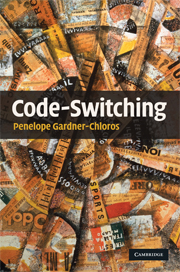
Canada's language laws have, all through its history, always been the object of highly emotional political debate and conflict. Because language is closely linked with identity issues, and the survival or assimilation of a population, the different laws that marked the history of Canada have all had a strong impact and have shaped in their way the actual face of Canada and its provinces now. The History of Quebec in the Perspective of the French Language by Jean-Philippe Warren is an extraordinary source of information regarding this subject. It portrays clearly and chronographically the successive language laws that were "voted" here and that shaped the political and linguistic landscape of Canada, and particularly Québec. Reading theses pages is like seeing a movie but from a specific angle, that of language use since the "discovery" of Canada and the colonisation of New France to the present day, where French is still threatened in a context of globalization.
Major political milestones and language laws are explained in Warren's article: 1774 (Quebec Act) which restored the French Civil laws in reaction to the Boston tea Party and the fear that the French citizens would join the American republic; 1838 (Report Durham) after the Troubles of 1837-8 and which explicitly calls for assimilation of the French-speaking Canadians, making Quebec an English province; 1840 (Unions of the two Canadas) which again disadvantaged the French Canadians; 1867 (British North America Act)). Other important dates relating to language issues and laws are further explained, as well as the inequities and resentment they generated, and the discontent here and for French speaking minorities outside Quebec, in Acadia, Ontario and Manitoba.
In Quebec, great political, social and cultural changes marked the second part of the 20th century during the period known as the Quiet Revolution, which culminated in a renewed affirmation of a distinctive nation and a desire for independence.
The 1960s to the 1980s were marked by two major political figures, Pierre Elliott Trudeau and René Lévesque, who crystallized opposite views, the first promoting bilingualism and multiculturalism, the second, the protection of French and the demand for a Quebec sovereign nation.
The Bilingualism from coast to coast that was implemented under Trudeau's reign in 1969 (Bill on Official Languages) is seen by Federalists as an ideal solution, but from a Québec nationalist point of view, this vision ignores the incongruity of forcing bilingualism, with all its costs, on such a wide and diverse nation. After the close defeat of the 1980's referendum on the question of Quebec sovereignty, The Meech Lake Accord, under Mulroney, was proposing new constitutional arrangements that would recognize the distinct character of Quebec, giving this province a distinct status. The personal intervention of Trudeau, then in retirement and out of power, led to sly, underhanded midnight deals which are now remembered in Quebec as "night of the long knives"( la nuit des longs couteaux ) and to the failure of the Accord.
In this Language Policy and practice class, we have seen Trudeau, The great Canadian, a documentary produced by CBC. It presented the man, his political and linguistic vision. The October Crisis of 1970 was presented from a federalist point of view, emphasizing the terrible acts of some extremist organization, but omitting all the illegal arrests of innocent citizens. It shows that language law and policies are always a question of perspective and it is very difficult to please divergent communities.
Trudeau's multiculturalism has created a complicated puzzle of various communities across Canada with large non English or French speaking communities in British Columbia, and Ontario which are changing the face of Canada. In Quebec, since René Lévesque, all governments have tried to favour an integrative approach, where French would become the common bond and language for all. Both these idealistic visions have not exactly produced the desired results. In the ROC (the rest of Canada), Bilingualism and services for the French are still a pipe dream. As for Quebec, while mostly integrating its immigrants economically and socially, it still has not made them appreciate the necessity of preserving at all costs the French language, which is, after all, what makes this province unique in North America.
Major political milestones and language laws are explained in Warren's article: 1774 (Quebec Act) which restored the French Civil laws in reaction to the Boston tea Party and the fear that the French citizens would join the American republic; 1838 (Report Durham) after the Troubles of 1837-8 and which explicitly calls for assimilation of the French-speaking Canadians, making Quebec an English province; 1840 (Unions of the two Canadas) which again disadvantaged the French Canadians; 1867 (British North America Act)). Other important dates relating to language issues and laws are further explained, as well as the inequities and resentment they generated, and the discontent here and for French speaking minorities outside Quebec, in Acadia, Ontario and Manitoba.
In Quebec, great political, social and cultural changes marked the second part of the 20th century during the period known as the Quiet Revolution, which culminated in a renewed affirmation of a distinctive nation and a desire for independence.
The 1960s to the 1980s were marked by two major political figures, Pierre Elliott Trudeau and René Lévesque, who crystallized opposite views, the first promoting bilingualism and multiculturalism, the second, the protection of French and the demand for a Quebec sovereign nation.
The Bilingualism from coast to coast that was implemented under Trudeau's reign in 1969 (Bill on Official Languages) is seen by Federalists as an ideal solution, but from a Québec nationalist point of view, this vision ignores the incongruity of forcing bilingualism, with all its costs, on such a wide and diverse nation. After the close defeat of the 1980's referendum on the question of Quebec sovereignty, The Meech Lake Accord, under Mulroney, was proposing new constitutional arrangements that would recognize the distinct character of Quebec, giving this province a distinct status. The personal intervention of Trudeau, then in retirement and out of power, led to sly, underhanded midnight deals which are now remembered in Quebec as "night of the long knives"( la nuit des longs couteaux ) and to the failure of the Accord.
In this Language Policy and practice class, we have seen Trudeau, The great Canadian, a documentary produced by CBC. It presented the man, his political and linguistic vision. The October Crisis of 1970 was presented from a federalist point of view, emphasizing the terrible acts of some extremist organization, but omitting all the illegal arrests of innocent citizens. It shows that language law and policies are always a question of perspective and it is very difficult to please divergent communities.
Trudeau's multiculturalism has created a complicated puzzle of various communities across Canada with large non English or French speaking communities in British Columbia, and Ontario which are changing the face of Canada. In Quebec, since René Lévesque, all governments have tried to favour an integrative approach, where French would become the common bond and language for all. Both these idealistic visions have not exactly produced the desired results. In the ROC (the rest of Canada), Bilingualism and services for the French are still a pipe dream. As for Quebec, while mostly integrating its immigrants economically and socially, it still has not made them appreciate the necessity of preserving at all costs the French language, which is, after all, what makes this province unique in North America.
Reference :
Warren, J-P. (2003). The history of Quebec in the perspective of the French language. In P. Larrivée, (Ed.) Linguistic conflict and language laws: Understanding the Quebec question, (pp.57-86). New York: Palgrave MacMillan.
Warren, J-P. (2003). The history of Quebec in the perspective of the French language. In P. Larrivée, (Ed.) Linguistic conflict and language laws: Understanding the Quebec question, (pp.57-86). New York: Palgrave MacMillan.
See also :
Le Mouton noir ( The black sheep), documentary produced by the National film board of Canada(1992);



